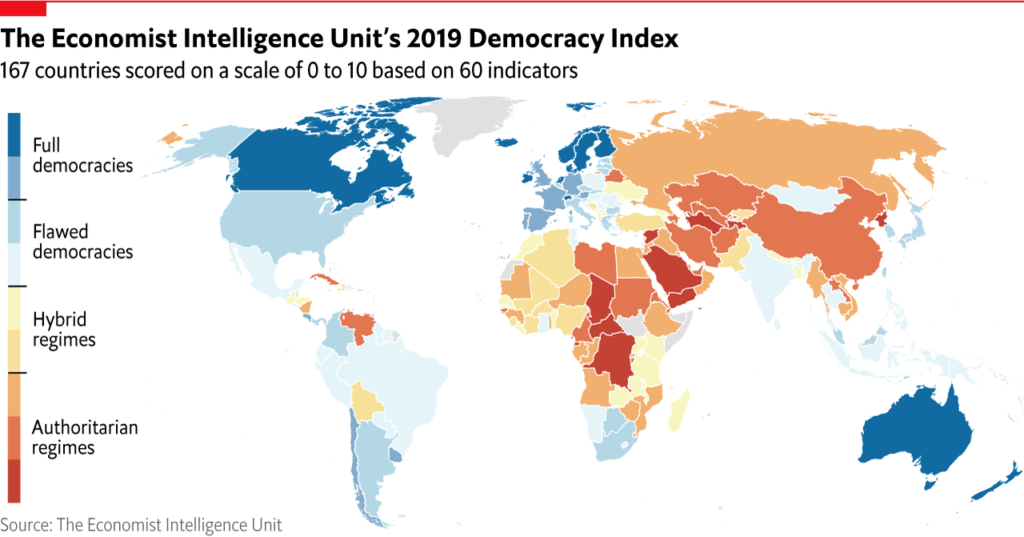Cuban security officials are a critical ingredient of Nicolas Maduro’s ability to retain power. So, as the Trump administration increases pressure on Venezuela’s pretender president, it must also do the same against Cuba, analyst Tom Rogan writes for the Washington Examiner.
But Venezuela’s endgame is closer than Maduro thinks, analyst James Stavridis writes for Bloomberg.
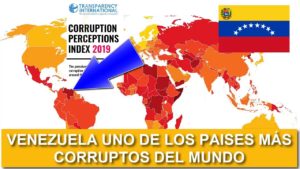 Venezuela, already known as the most corrupt country in Latin America, added to the dubious distinction last year, entering the list of the world’s top five most corrupt nations, according to Transparency International’s 2019 analysis, The Miami Herald reports.
Venezuela, already known as the most corrupt country in Latin America, added to the dubious distinction last year, entering the list of the world’s top five most corrupt nations, according to Transparency International’s 2019 analysis, The Miami Herald reports.
Moscow has become the main lifeline for the Venezuelan regime, providing billions in loans and buying most of the country’s oil output, notes analyst Frida Ghitis. According to the State Department’s Venezuela point man, Elliott Abrams, Russia is handling 70 percent of Venezuela’s oil and not only finances the sales, but helps quietly ship it and hide it from international sanctions.
Russia is actively countering the efforts by Washington and dozens of democracies that have pledged to support opposition leader Guaido, and restore democracy to a country where Maduro rules with no consideration for democratic norms, she writes for World Politics Review.
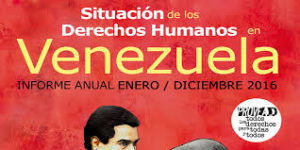 As the interim government of Venezuela continues to fight for freedom and democracy against the Maduro regime, the United States is “unwavering in [its] commitment” to helping Guaidó and the National Assembly, US Agency for International Development (USAID) Administrator Mark Green said on January 23, The David A. Wemer writes.
As the interim government of Venezuela continues to fight for freedom and democracy against the Maduro regime, the United States is “unwavering in [its] commitment” to helping Guaidó and the National Assembly, US Agency for International Development (USAID) Administrator Mark Green said on January 23, The David A. Wemer writes.
Delivering video remarks to the Atlantic Council, Green praised Guaidó for “his unwavering leadership and courage” in his first year as interim president. Nearly sixty countries now recognize Guaidó as the legitimate interim president of Venezuela.
Defying a travel ban, Guaidó traveled to Davos to address world leaders at the 50th edition of the World Economic Forum, in the hopes of mobilizing support from Europe to crack down on Venezuela’s gold trade, which he said “has helped consolidate Mr. Maduro’s control by providing a means of foreign exchange and helping to secure the loyalty of the military,” adds Global Americans, a partner of the National Endowment for Democracy.
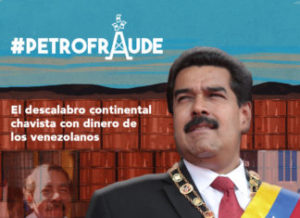 Given the current drivers at play, the status quo is a likely scenario for 2020, argues Moises Rendon, director of the Future of Venezuela Initiative and fellow with the Americas Program at the Center for Strategic and International Studies (CSIS):
Given the current drivers at play, the status quo is a likely scenario for 2020, argues Moises Rendon, director of the Future of Venezuela Initiative and fellow with the Americas Program at the Center for Strategic and International Studies (CSIS):
But there will be a key event that will once again test Maduro’s resiliency and Guaidó’s leadership: parliamentary elections. With no exact date set yet, the Constitution of Venezuela states there should be parliamentary elections this year. Like previous elections, this will create a dilemma for the Venezuelan people, the opposition, and the international community: whether to participate in an election or not.
The path to restoring and stability will undoubtedly be long and arduous, Rendon adds. But with no clear electoral way out, the role of the international community remains essential for aid and assistance to Venezuela.
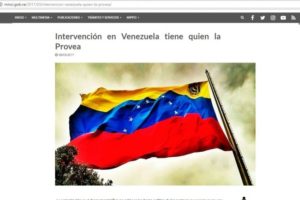 The Economist’s Intelligence Unit’s Democracy Index (below) cites the growing use of authoritarian practices in Venezuela, Nicaragua and Bolivia, the Latin America News Dispatch reports.
The Economist’s Intelligence Unit’s Democracy Index (below) cites the growing use of authoritarian practices in Venezuela, Nicaragua and Bolivia, the Latin America News Dispatch reports.
Maduro’s partnership with Hezbollah has increased the risk that Iran will sponsor terrorism in Latin America, The Washington Post adds (HT:FDD).
